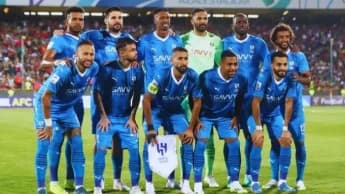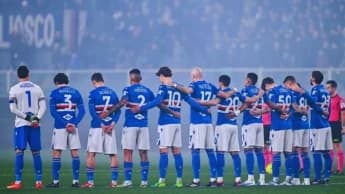Ipswich Town Football Club: A Legacy of Tradition, Triumph, and Transformation

From Portman Road to Premier League Dreams: The Tractor Boys' Journey Through Glory, Grit, and Community Spirit
Founded in 1878, Ipswich Town Football Club is a storied institution in English football, deeply rooted in the historic town of Ipswich, Suffolk. Known affectionately as the "Tractor Boys," the club has carved out a unique identity, balancing moments of glory with the grit of lower-league challenges. Portman Road, their home since 1884, has been the backdrop to decades of triumphs, heartbreaks, and unwavering local support. Though currently competing in the Championship, the second tier of English football, Ipswich Town’s legacy is intertwined with some of the sport’s most iconic figures and unforgettable chapters.
The club’s golden era arrived under the legendary Sir Alf Ramsey, who guided Ipswich from the old Third Division South to the pinnacle of English football in just a few years. In 1962, against all odds, Ramsey’s side clinched the First Division title in their debut top-flight season, a feat that remains one of the most remarkable underdog stories in football history. Ramsey’s departure to manage England did not diminish Ipswich’s ambition; under another iconic figure, Sir Bobby Robson, the club cemented its reputation as a force in domestic and European competitions. The late 1970s and early 1980s saw Ipswich lift the FA Cup, reach European finals, and consistently challenge for league honors, fueled by a blend of homegrown talent and shrewd signings.
Ipswich Town’s identity has long been defined by its connection to the community and an emphasis on nurturing talent. Despite financial constraints and the challenges of modern football, the club has maintained a reputation for producing players who embody its blue-collar ethos. From the academy graduates who became local heroes to the loyal fanbase that fills Portman Road’s stands, there’s a palpable sense of pride in representing Suffolk on the national stage. Recent years have seen fluctuating fortunes, with relegations and promotions testing resilience, but the club’s enduring spirit reflects its roots: a small-town team with a big heart, forever striving to recapture past glories while forging new memories for future generations.
Team History
Founding and Early Years (1878–1955)
Ipswich Town Football Club was founded in 1878, initially as an amateur side playing local matches in Suffolk. For its first few decades, the club operated in regional leagues, including the Suffolk Senior Cup and Southern Amateur League. In 1888, the team moved to its iconic home, Portman Road, a ground that has remained central to its identity ever since. The club turned professional in 1936 and joined the Football League in 1938, starting in the Third Division South. Progress was slow in these early years, with Ipswich consolidating their status as a lower-league side while building a loyal local fanbase.
The Alf Ramsey Era: Rise to Glory (1955–1963)
The appointment of Alf Ramsey as manager in 1955 marked the beginning of Ipswich Town’s transformation into a footballing powerhouse. Ramsey, a former England international, implemented a revolutionary tactical system—a flexible 4-2-4 formation—that exploited the strengths of his squad. Under his guidance, Ipswich climbed from the Third Division South to the First Division in just seven years. The pinnacle came in the 1961–62 season, when Ipswich, in their debut top-flight campaign, defied all expectations to win the First Division title, pipping Burnley and Tottenham Hotspur to the trophy. Ramsey’s meticulous coaching and the performances of players like striker Ray Crawford and captain Andy Nelson became legendary. His success earned him the England national team job in 1963, where he would later win the 1966 World Cup.
European Adventures and the Bobby Robson Dynasty (1969–1982)
After a period of mid-table stability, Ipswich entered another golden age under Sir Bobby Robson, who took charge in 1969. Robson, a former player and visionary manager, blended youth development with astute signings to build a thrilling, attacking side. The club won the FA Cup in 1978, defeating Arsenal 1-0 at Wembley, and claimed the UEFA Cup in 1981 after a two-legged final victory over AZ Alkmaar. During this era, Ipswich became synonymous with stylish, possession-based football, led by stars like Dutch midfield maestro Arnold Mühren, Scottish playmaker John Wark, and striker Paul Mariner.
Robson’s Ipswich also challenged consistently for league honors, finishing runners-up in the First Division in 1981 and 1982, narrowly missing out to Aston Villa and Liverpool. Their European campaigns were equally memorable, including a run to the European Cup quarter-finals in 1982. However, financial constraints and the sale of key players eventually led to a decline, and Robson departed in 1982 to manage England, leaving behind a legacy of flair and ambition.
Decline and Struggles (1980s–1990s)
The post-Robson years proved turbulent. Relegation from the First Division in 1986 marked the start of a prolonged period of instability. Financial difficulties, exacerbated by the cost of modernizing Portman Road, saw the club yo-yo between divisions. Despite brief moments of hope—such as winning the Second Division title in 1992 under John Lyall—Ipswich struggled to regain top-flight consistency. The 1994–95 season ended in relegation from the Premier League, followed by a series of near-misses in the playoffs, deepening frustrations among supporters.
The George Burley Revival and Premier League Return (2000–2002)
A resurgence arrived under manager George Burley in the early 2000s. Burley’s side, featuring academy graduates like Titus Bramble and Kieron Dyer alongside experienced stars such as Marcus Stewart and Matt Holland, secured promotion to the Premier League via the 1999–2000 playoffs. Their first season back (2000–01) was a fairy tale: Ipswich finished fifth in the Premier League, qualifying for the UEFA Cup, with Stewart scoring 19 league goals. However, the euphoria was short-lived. Financial overreach and a lack of squad depth led to relegation in 2002, plunging the club into a debt crisis that took years to resolve.
Rebuilding and the Modern Era (2007–Present)
After a 2007 takeover by businessman Marcus Evans, Ipswich stabilized in the Championship but struggled to mount serious promotion challenges. The club’s famed academy continued to produce talent, including England internationals Connor Wickham and Tyrone Mings, though both were sold to ease financial pressures. A series of managerial changes—from Roy Keane to Mick McCarthy—yielded mixed results.
In 2021, Ipswich entered a new chapter under the ownership of Gamechanger 20 Ltd, a consortium led by American investors. With increased investment and the appointment of young manager Kieran McKenna in 2022, the club has rekindled hopes of a Premier League return. Promotion from League One in 2022–23 marked a step forward, and the 2023–24 Championship campaign has seen Ipswich emerge as surprise promotion contenders, blending attacking football with a renewed sense of purpose.
Infrastructure and Player Development
Ipswich Town Football Club has long been dedicated to fostering a strong foundation for success through continuous investments in infrastructure and player development. With a legacy built on producing top-tier talent and enhancing facilities to meet modern standards, the club has positioned itself as a beacon of progress in English football. From Portman Road’s evolution to the high-performance training environment at Playford Road and the academy’s unwavering commitment to nurturing young talent, Ipswich Town’s blueprint for sustained excellence is firmly in place.
Portman Road: A Historic Stadium with Modern Enhancements
Portman Road has been the heartbeat of Ipswich Town since 1884, hosting countless memorable moments in the club’s history. As the club continues to evolve, extensive renovations have been undertaken to modernize the stadium and enhance the matchday experience for players, fans, and media personnel alike.
In preparation for Ipswich Town’s return to the Premier League in 2024, the club carried out a series of upgrades to meet top-flight regulations. Key enhancements included refurbishing the referees’ changing rooms to incorporate masseuse facilities, separate areas for male and female officials, and a newly designed lounge for players’ families. An international media suite and a state-of-the-art TV studio were also introduced, alongside the development of five new media suites. Additionally, both the home and away dressing rooms were upgraded to provide a more professional environment for players.
To improve broadcasting capabilities, the club increased camera feeds, upgraded floodlights, and installed digital advertising hoardings around the pitch. A safe standing area was introduced to enhance the atmosphere for passionate supporters, while fan concourses and bar areas received significant improvements to ensure a more enjoyable matchday experience.
Looking ahead, Ipswich Town has ambitious plans to redevelop the Cobbold Stand, a structure that has been part of the stadium since 1971. This redevelopment project aims to modernize the stand while incorporating additional amenities such as an aquatics center, a seven-story car park, a hotel, and a gym. Although this renovation will temporarily reduce the stadium’s capacity by 4,000 seats during an 18-month construction period, it is expected to significantly elevate Portman Road’s standing as a top-tier football venue.
Playford Road: A Cutting-Edge Training Facility
The Playford Road training ground has been the epicenter of Ipswich Town’s footballing operations since its official opening in 2001. Designed to support both first-team and academy players, the facility boasts an impressive array of features that contribute to the club’s competitive edge.
The site includes multiple training pitches, including four full-size grass pitches, four medium-sized grass pitches, a medium-sized floodlit grass pitch, a full-size floodlit artificial 3G pitch, and an indoor medium-sized artificial 3G pitch within a dome. These surfaces provide ideal conditions for technical and tactical training sessions in various weather conditions.
In recent years, significant investments have been made to enhance Playford Road’s facilities. A state-of-the-art gym was installed in 2018, providing players with cutting-edge equipment to optimize physical conditioning. In 2019, further improvements were made, including a new medical suite featuring advanced recovery equipment, which cost approximately £90,000. An additional £100,000 was allocated to install new fencing around the complex, ensuring security and privacy for players and staff.
Beyond the playing surfaces, Playford Road offers extensive support facilities, including a recovery suite, a canteen, player and parent lounges, a recreation room, classrooms for tactical analysis and academic development, changing rooms, and dedicated office spaces for coaching staff. These investments demonstrate Ipswich Town’s commitment to creating a high-performance environment that supports player growth at every level.
The Academy: A Legacy of Nurturing Talent
Ipswich Town’s academy has a proud tradition of developing talented players who have gone on to represent the club at the highest level. With a Category Two status under the Elite Player Performance Plan (EPPP), the academy operates a structured program that prioritizes technical development, tactical understanding, and character-building for young players.
Notable graduates from the academy include Roger Osborne, Mick Mills, Kevin Beattie, Kieron Dyer, Darren Bent, Connor Wickham, and Andre Dozzell, all of whom have made significant contributions to Ipswich Town and beyond. The academy’s track record of success has made it a highly respected institution in English football.
The academy’s home is Playford Road, where youth teams train and compete in state-of-the-art facilities. The U23 and U18 squads regularly play matches at the training complex, with select fixtures held at Portman Road to provide young players with experience in a professional stadium environment.
A key component of Ipswich Town’s player development strategy is the seamless integration of academy graduates into the first team. The club has consistently demonstrated a willingness to promote young talent, ensuring that promising players receive opportunities to develop at the highest level. This pathway to the senior squad is a testament to the club’s long-term vision of sustainability and success through homegrown talent.
Investing in the Future: A Holistic Approach to Development
Ipswich Town’s approach to infrastructure and player development extends beyond physical facilities. The club has embraced sports science, data analysis, and modern coaching methodologies to maximize player potential.
A dedicated team of strength and conditioning coaches, physiotherapists, and performance analysts work closely with players to enhance fitness levels, prevent injuries, and optimize match performance. The integration of GPS tracking and video analysis allows coaching staff to fine-tune tactical strategies and monitor player progress with precision.
Additionally, Ipswich Town places great emphasis on mental well-being and leadership development. The club provides psychological support and leadership programs to help players navigate the pressures of professional football while fostering a positive and resilient mindset.
A Club on the Rise
With a strong commitment to infrastructure investment and player development, Ipswich Town is well-equipped to compete at the highest levels of English football. The club’s recent stadium renovations, training ground advancements, and academy excellence underscore its ambition to establish itself as a force to be reckoned with in the Premier League and beyond.
As Ipswich Town continues to build for the future, the foundation laid through these strategic initiatives will play a crucial role in shaping the club’s journey. By blending tradition with innovation, Ipswich Town remains dedicated to creating a legacy of success, both on and off the pitch.
Team Achievements
Ipswich Town Football Club, affectionately known as the Tractor Boys, has a rich and storied history filled with remarkable achievements. From domestic triumphs to European glory, the club has left an indelible mark on English football. This section delves into the team’s most significant accomplishments, celebrating the moments that have defined Ipswich Town as a club of distinction.
Domestic Dominance: League Titles and Cup Triumphs
First Division Champions (1961-62)
Under the legendary management of Sir Alf Ramsey, Ipswich Town achieved their greatest domestic success by winning the First Division title in the 1961-62 season. This was a remarkable feat for a club that had only been promoted to the top flight the previous year. Ramsey’s tactical genius, combined with the contributions of key players like Ray Crawford and Ted Phillips, propelled Ipswich to the pinnacle of English football.
FA Cup Glory (1977-78)
Ipswich Town added the FA Cup to their trophy cabinet in the 1977-78 season under the guidance of manager Bobby Robson. The team defeated Arsenal 1-0 in the final at Wembley, with Roger Osborne scoring the decisive goal. This victory cemented Ipswich’s reputation as a force to be reckoned with in English football and remains one of the club’s most cherished moments.
Second Division Champions (1991-92)
After a period of decline, Ipswich Town bounced back in style by winning the Second Division title in the 1991-92 season. Managed by John Lyall, the team secured promotion to the newly formed Premier League, marking the beginning of a new era for the club.
European Adventures: Conquering the Continent
UEFA Cup Winners (1980-81)
One of Ipswich Town’s crowning achievements came in the 1980-81 season when they lifted the UEFA Cup under Bobby Robson. The team defeated AZ Alkmaar 5-4 on aggregate in the final, with John Wark, Paul Mariner, and Frans Thijssen playing pivotal roles. This triumph showcased Ipswich’s ability to compete with Europe’s elite and remains a highlight in the club’s history.
European Campaigns in the 1970s and 1980s
Ipswich Town consistently performed well in European competitions during the 1970s and 1980s. They reached the quarter-finals of the European Cup in 1962-63 and made deep runs in the UEFA Cup in subsequent years. These campaigns not only brought pride to the club but also established Ipswich as a respected name on the continental stage.
Cup Competitions: Consistent Performances
Texaco Cup Winners (1972-73)
Ipswich Town added the Texaco Cup to their list of achievements in the 1972-73 season. This competition, which featured teams from England, Scotland, and Ireland, saw Ipswich defeat Norwich City in the final, further cementing their dominance in East Anglian football.
Football League Trophy Finalists (2009-10)
In more recent years, Ipswich Town reached the final of the Football League Trophy in the 2009-10 season. Although they were defeated by Southampton, their journey to the final demonstrated the club’s resilience and determination to compete for silverware.
Individual and Team Accolades
Player Contributions
Over the years, Ipswich Town has been home to some of English football’s most talented players. Legends like Kevin Beattie, Arnold Muhren, and Terry Butcher have donned the blue and white shirt, contributing to the club’s success and earning individual accolades along the way.
Managerial Excellence
The achievements of Ipswich Town would not have been possible without the visionary leadership of managers like Sir Alf Ramsey and Sir Bobby Robson. Their innovative tactics and ability to nurture talent laid the foundation for the club’s golden eras.
Ipswich Town’s achievements are a testament to the club’s enduring spirit and commitment to excellence. From their historic league title win to their unforgettable European triumph, the Tractor Boys have carved out a unique place in football history. As the club continues to strive for success, these achievements serve as a source of inspiration for future generations of players and fans alike.
Rivalries and Key Matches
Ipswich Town Football Club has a rich history filled with fierce rivalries and unforgettable matches that have shaped its identity in English football. From local derbies filled with passion to historic encounters that defined seasons, these rivalries and key matches highlight the club’s competitive spirit and legacy.
The East Anglian Derby: A Battle for Regional Supremacy
The most significant and long-standing rivalry for Ipswich Town is with Norwich City, famously known as the East Anglian Derby or the "Old Farm Derby." The name humorously plays on the famous "Old Firm Derby" in Scotland while acknowledging the agricultural roots of the East Anglian region.
The rivalry dates back to the early 20th century, with the first professional meeting between the two sides occurring in 1939. Since then, every clash between Ipswich and Norwich has carried immense importance, not only in terms of league position but also for the passionate fanbases on both sides.
Matches between the two clubs have seen thrilling encounters, controversial moments, and high stakes. One of Ipswich's most memorable wins came in 1998, when they thrashed Norwich 5-0 at Portman Road, a result still cherished by Town fans today. However, Norwich has also had their share of victories, including their play-off semi-final win in 2015, which denied Ipswich a chance at Premier League promotion.






